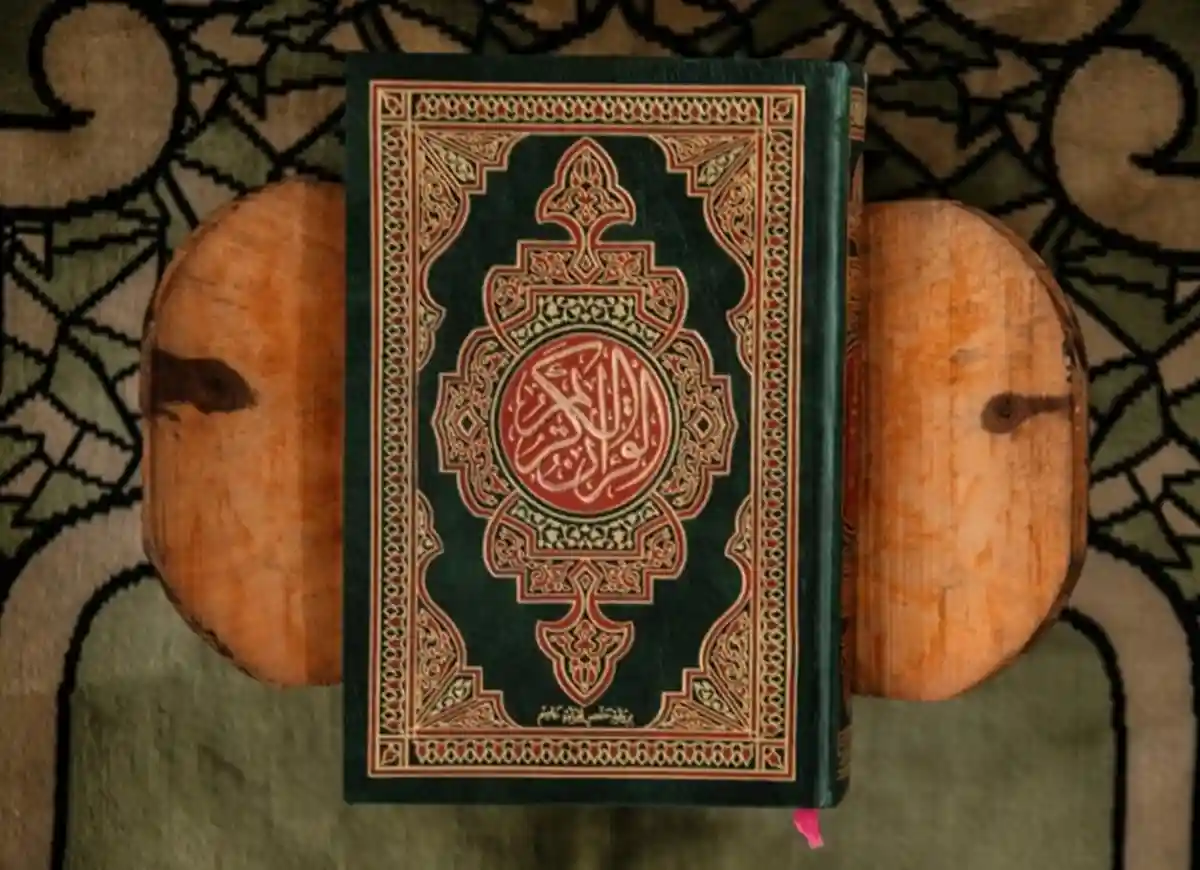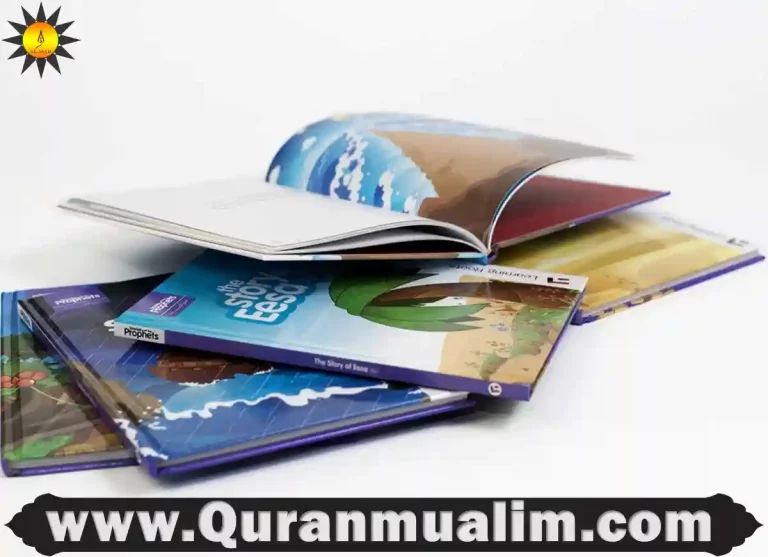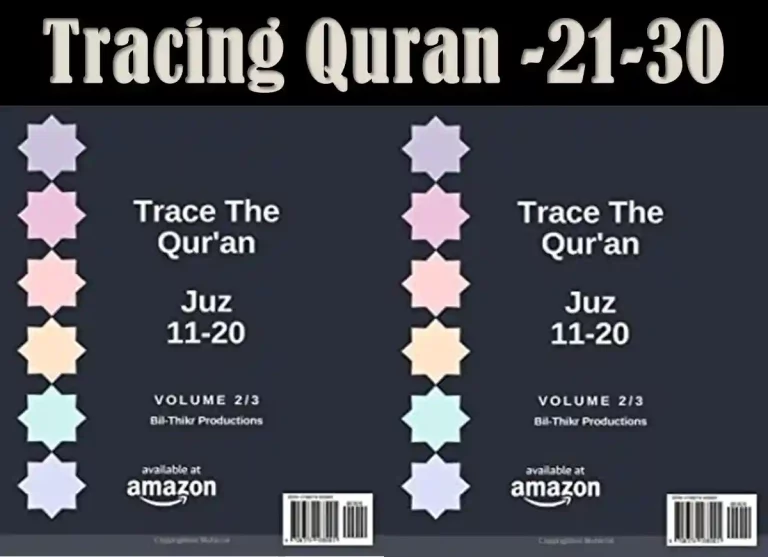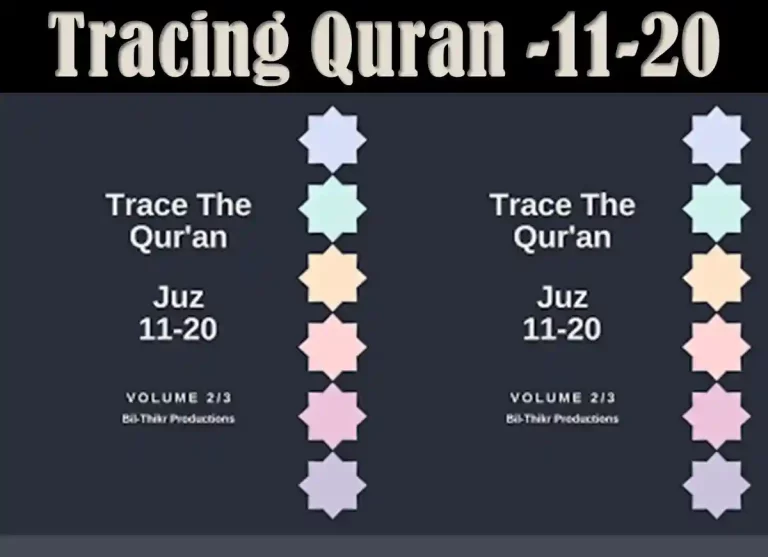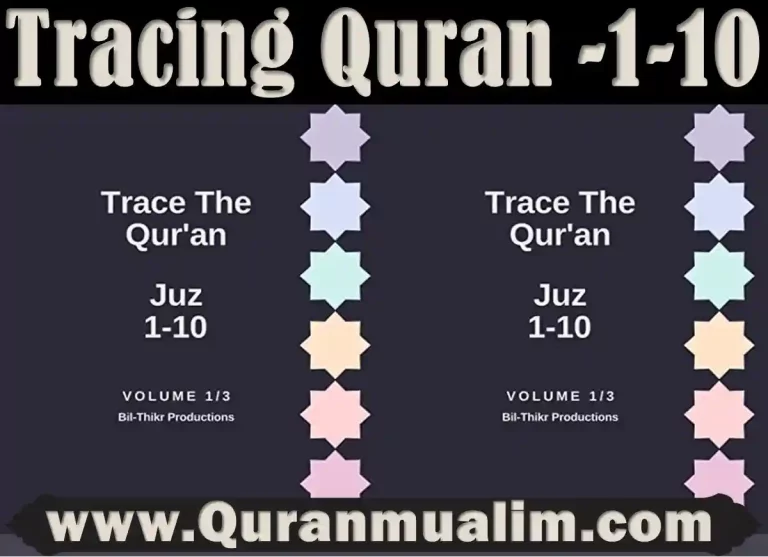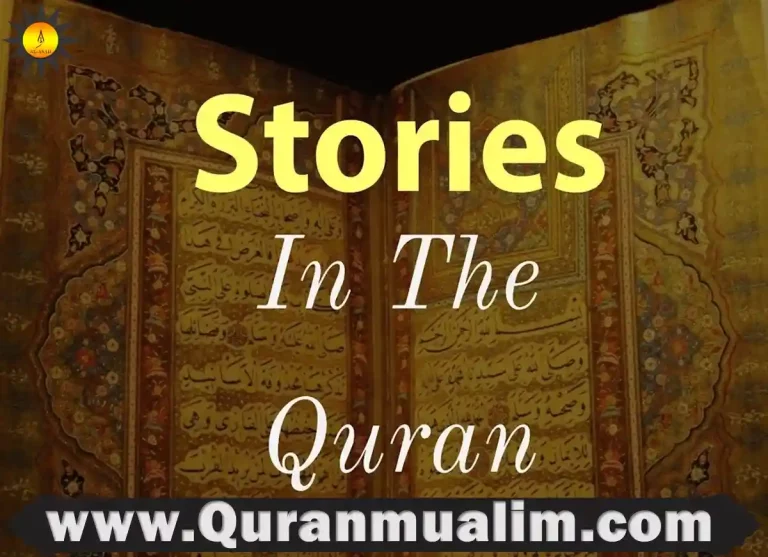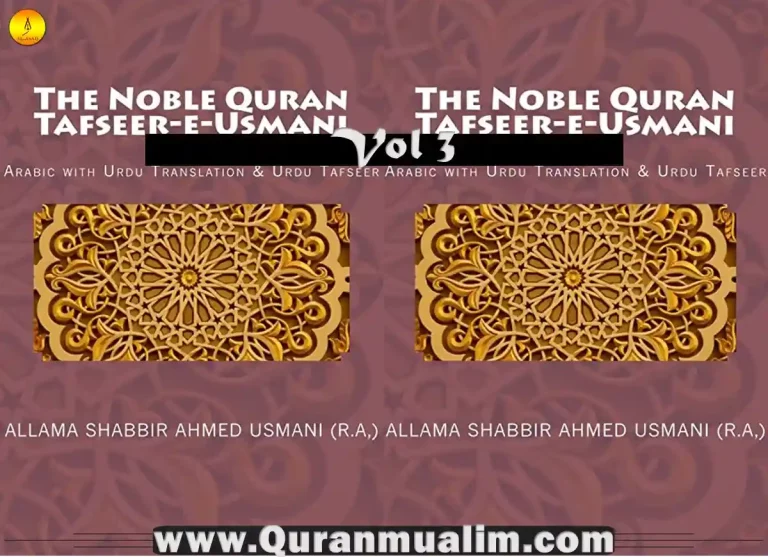The Qur’an, also spelled as Quran or Koran, is the central religious text of Islam, regarded by Muslims as the literal word of God. With its timeless wisdom, profound guidance, and eloquent prose, the Qur’an has captivated the hearts and minds of millions throughout history. This sacred scripture serves as a comprehensive guide for spiritual development, moral conduct, and societal harmony.
As a testament to its significance, the Qur’an continues to be a source of inspiration and contemplation for people around the world, regardless of their religious or cultural backgrounds. Its verses address a wide range of topics, including theology, ethics, law, spirituality, and social justice, making it a comprehensive guide for individuals seeking guidance and wisdom.
In this collection of book reviews, we aim to delve into the depths of the Qur’an’s message, exploring its profound teachings, universal principles, and its impact on the lives of those who have embraced its teachings. We will analyze its literary qualities, its historical context, and the spiritual significance it holds for Muslims.
The Qur’an is not merely a book of religious rituals or legal codes; it encompasses a holistic worldview that emphasizes the importance of inner transformation, ethical behavior, and compassionate engagement with the world. It offers insights into the nature of God, the purpose of human existence, and the path to spiritual enlightenment.
Through these book reviews, we hope to highlight the multifaceted nature of the Qur’an, shedding light on its intellectual richness, ethical teachings, and the relevance of its principles in the contemporary world. We will explore its impact on individuals, communities, and societies throughout history, emphasizing the transformative power of its message.
While the Qur’an holds a central position in Islamic theology, its teachings and themes transcend the boundaries of religion. Its universal values, such as justice, compassion, humility, and respect for the dignity of every human being, have resonated with people from diverse backgrounds, fostering interfaith dialogue and understanding.
By examining various interpretations and commentaries, we aim to provide a comprehensive overview of the Qur’an’s significance and explore the ways in which it continues to inspire and guide individuals towards spiritual growth, ethical living, and social harmony.
We invite readers to embark on this journey of discovery, to delve into the profound wisdom of the Qur’an, and to explore its timeless teachings that have shaped the lives of millions. Through these book reviews, we hope to foster a deeper understanding of the Qur’an’s message and encourage dialogue that transcends cultural, religious, and ideological boundaries.
May this exploration of the Qur’an’s profound teachings inspire readers to seek knowledge, engage in critical reflection, and embrace the values of compassion, justice, and peace that lie at the heart of this divine revelation.
The Qur’an – You can get Prime shipping at a less expensive charge from sellers. This e book discusses the concept of “abrogation in the Qur’an,” which has played an vital position in Islamic regulation’s development and has implications for know-how both the history and integrity the Qur’anic textual content.

popularized by way of Muslims as individuals and corporations claiming that a few passages in the Qur’an about tolerance had been not noted by using those who call on Muslims not to guide their enemies.
Louay Fatoohi, creator, argues that it can not had been drawn from the Qur’an and that its implications are contrary to Qur’anic ideas. He additionally factors out conceptual flaws in abrogation and severe issues with its software by exceptional pupils.
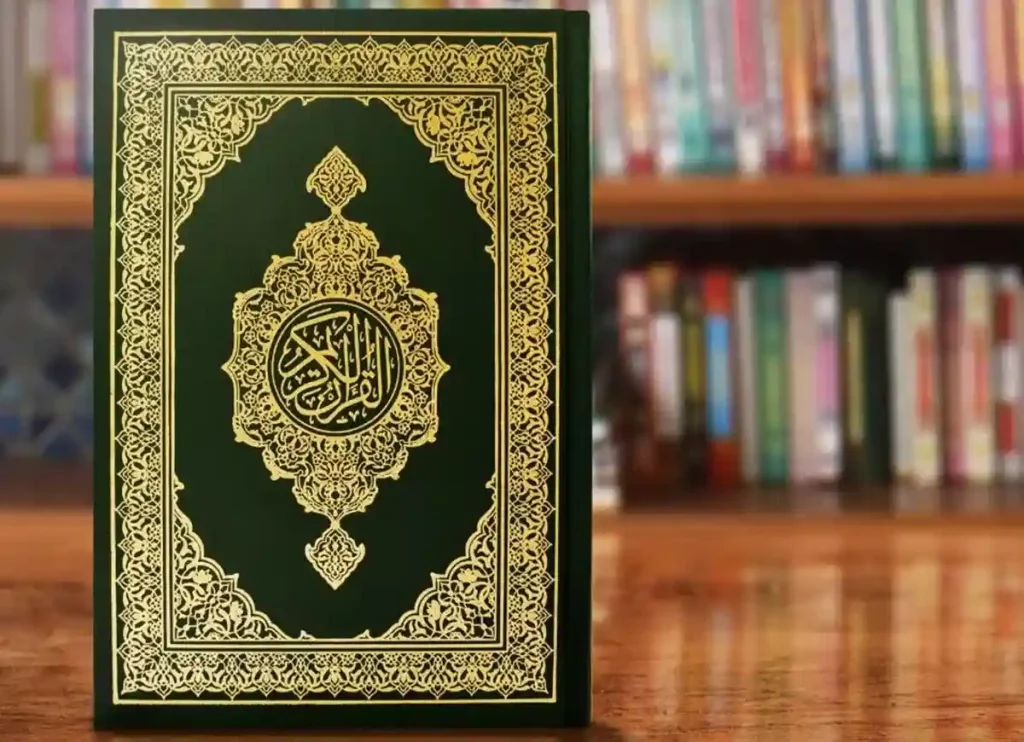
The Qur’an – Abrogation In the Qur’an And Islamic Law suggests the evolution of the concept, from its handiest form to the complex and multifaceted doctrine that it’s far nowadays. This book explains the issues that those three modes of abrogation had been designed to solve and the way they’ve shaped Islamic regulation.
Abrogation is likewise critiqued in the book for its position in explaining the notion that now not all Qur’anic revelations have survived within the “mushaf”, the written document. Understanding abrogation is a prerequisite to information the history of Qur’anic texts.
The technological know-how of Qur’anic remark is complex because it’s tough to decide which abrogating verses are ( nasikh), and which of them are abrogated ( mansukh).
The problem has been a topic of intense debate amongst Muslim students. This is because of the differences in opinion among later scholars concerning the technical that means of naskh (“abrogation”)
Abrogation in keeping with the Early Scholars
An research of the speech of the Companions, Followers and others found out that they used abrogation in their common linguistic sense. That is, it become the removal of one element from any other.
This isn’t the same as the legal theorists’ sense [i.E. That one verse has abrogated another verse, so it is no longer acceptable to act on that verse]. According to them, abrogation approach “elimination” of sure characteristics in a single verse by using every other verse.
- The time has come to act on the abrogated verse.
- The that means of the speech turned into changed from its maximum probably to a lesser one.
- The situation isn’t special; it is simplest unintended.
- four. The import fashionable is defined.
- This is the explanation of what distinguishes the mansus from the it seems that analogical.
- Since then, one of the pre-Islamic pagan practices has been extinct.
- Abrogation of any sacred regulation previously ( Shara’i).
The topic of abrogation grew in scope and have become extremely complicated. It is a topic that has sparked loads of discussion.
Some commentators have raised the variety of abrogated passages to 5 hundred. If you look nearer, you’ll discover that there are numerous verses of this kind.
Abrogation consistent with the Later Scholars
The Qur’an – The verses which are considered to be abrogated by technical meanings given by way of later scholars are few, mainly in light of our evaluation. After considering the perspectives of found out scholars, Shaykh Jalal al-Din Suyuti has written a entire account in his Itqan.
He has recollected the verses that were deemed to be abrogated by using later scholars, in accordance with Qadi Abu Bakr Ibn al-‘Arabi’s view. They are about twenty. However, I even have a one-of-a-kind opinion on a number of these twenty.
Al-Fawz al-Kabir i Usul al-Tafsir. Translated into Arabic via Salman al-Husayni al-Nadwi. Pp.81-eighty four
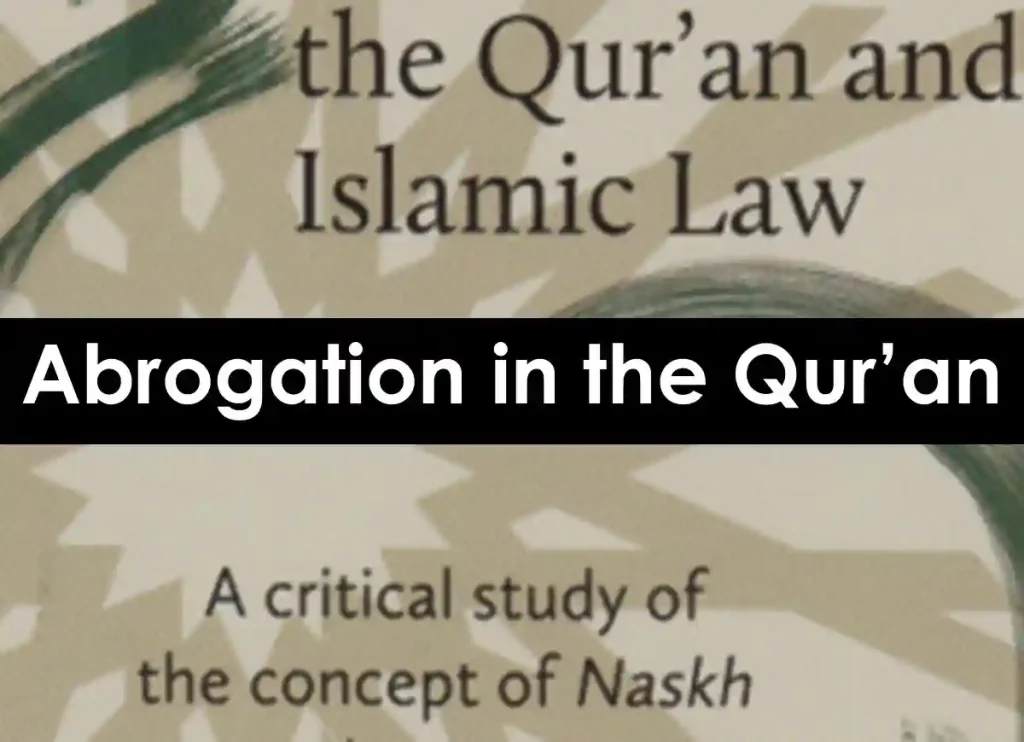
Note:
[Shah Waliullah al-Dahlawi stated in some other place in Al-Fawz al-Kabir, that abrogation can’t be decided in five verses according the meaning given with the aid of the older pupils. He explains the fifteen closing verses, which were concept to be abrogated with the aid of Jalal Al-Din Suyuti or others and suggests why they may be not.
He writes, for instance, that the verse “As to those with whom you’ve got made a promise, supply them their shares.” According to the Book of Allah, “Surely Allah is Witness over all” (four:33) is said to be abrogated with the aid of the verse, “As for the spouse and children of the womb, they’re closer to each other consistent with the Book of Allah.
“Surely Allah is aware that everything” (8.Seventy five). He says, “Here, I must say that the verse seems to intend that the inheritance is for customers ( mawali), whilst doing right and maintaining connection are for the masters of clientship. This method that there’s no abrogation.
He also remarks on some other verse that “The adulterer shall in no way marry unless an adulterous female or an idolatress, and an adulteress shall not marry except an adulterer, or an idolater.”
All that is forbidden to believers’ (24.Three) is taken to be abrogated by means of the verse “Arrange the marriages of the spouseless among you, and the succesful amongst your bondmen or bondwomen” (24.32). Then he states, “I am going to nation that Imam Ahmad followed the outward meanings of the verse.
However, different students accept as true with that the verse’s that means is that the one who commits a extremely good sin is not appropriate but for the adulteress, or that it is not suitable that he marry the adulteress. The verse’s phrases (‘All that is forbidden to believers’) trace at adultery and polytheism. This is why there is no abrogation.
The following 5 verses are abrogated by means of Shah Waliullah al-Dahlawi. (1) Al-Anfal sixty five is by means of Al-Anfal sixty four; (2) Al-Mujadilah 12 is with the aid of Al-Mujadilah13; (3) Al-Baqarah180 by using Al-Nisa’eleven; (four) Al-Ahzab50 by using Al-Ahzab52; (5) Al-Muzzammil1 through Al-Muzzammil20; (5) Al-Muzzammil1 by means of Al-Muzzammil 2 by using Al-Muzzammil20;
Mufti Sa’identity Ahmad Palanpuri wrote, whilst quoting Mawlana Ubaydullah Sinhi. “Thus in keeping with this term Shah Sahib does not remember any verse inside the Qur’an abrogated. It is critical to note that Shah Waliullah’s statements in this regard are wise. He attempted to explain the problem gradually to human beings thinking about their situations.
Mufti Palanpuri maintains to country that “Allamah Sindhi” (might also Allah have mercy upon him) desires to declare that Shah Waliullah’s verses are not abrogated.
This opinion could were rejected by using the people if he had expressed it all at once. He desired to steadily carry human beings to the idea that the Qur’an had passed through a manner called abrogation. However, he did now not want to accomplish that all at once. (Sharh al-Fawz al-Kabir, p.275)]
Wisdom of abrogation
There are few rules which can be completely black-and-white in life. Every rule has an exception. This is why Islamic criminal theory emphasizes the importance of distinguishing between ‘preferred’ and’specific’.
Although this concept is obvious if you think about it, the idea of abrogation was always a goal for critics of Islam, even throughout the time of the Prophet. Allah has changed His mind if the policies are modified.
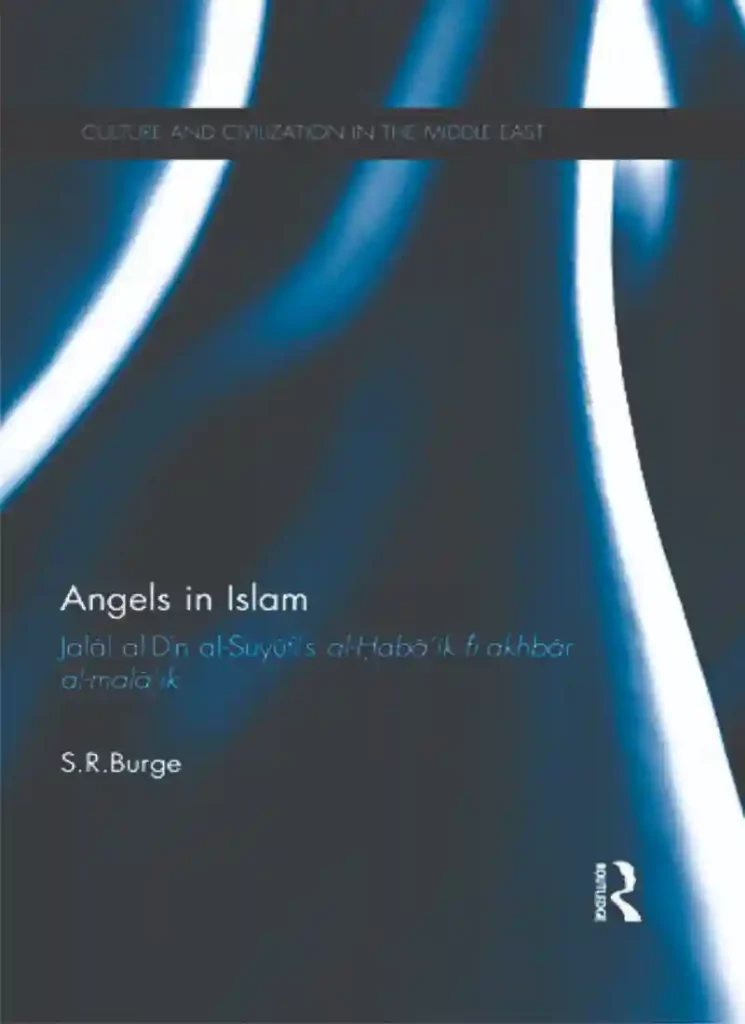
Conclusion
The Qur’an abrogation refers to the revelation or modification of verses that modify or exchange the rulings made by using preceding verses. The preceding ruling may be completely removed or changed with conditions or exceptions. Scholars differed on the quantity of verses abrogated, as they used exclusive technical definitions for the time period “abrogation”.
This is due to the fact abrogation isn’t supposed to show any contradictions in Qur’an. It is an indication of divine understanding that distinct teachings are given to every context. The slow technique of the Qur’an to alcohol prohibition can sincerely be seen.
Although Islam prohibits all intoxicants, Qur’an’s slow method to alcohol prohibition gives precious classes that can be used to mitigate the harmful outcomes of alcohol intake in individuals and societies. Wisdom can also be received from the spirit of gradualism, as abrogation exhibits a way to cope with other issues and issues.
The claim that peaceful Qur’an verses had been invalidated or abrogated by way of the’verse to the sword’ is based on a lack of understanding of the nuanced way early Muslims used the term.
Many classical scholars, which include Qur’an’s early commentators, refute the claim that peaceful verses had been absolutely or partially abrogated. Those who claimed that the non violent verses have been abrogated have been claiming that the partial abrogation become supposed.
They additionally stated that war is regulations that aren’t a part of the general guidelines for peace, tolerance, forgiveness.
Success is from Allah and Allah is aware of high-quality.
Product info
- Publisher:Routledge. 1st Edition (August 24, 2012).
- Language : English
- Hardcover:302 Pages
- ISBN-10 : 041563198X
- ISBN-thirteen : 978-0415631983
- Item Weight : 1.2 pounds
Louay Fatoohi
Louay Fatoohi turned into a Baghdad, Iraqi, native in 1961. In 1992, he and his wife immigrated to the United Kingdom. He currently is living in Birmingham, England. He obtained a BSc degree in physics at Baghdad University in Iraq in 1984, and a PhD diploma in astronomy at Durham University within the UK in 1998.
Louay was born into a Christian own family but transformed to Islam all through his twenties. Islam is his religion of preference and preferred manner of dwelling. It is likewise a subject of deep intellectual hobby to him. His principal studies regions are Qur’anic studies and Islamic Studies in fashionable.
* Comparative examine in history within the Qur’an and Jewish scriptures and other unbiased historical resources
Sufism
The Qur’an, the central religious scripture of Islam, holds immense historical and spiritual significance. Understanding the history and revelation of the Qur’anic text is crucial in comprehending its profound influence on the Muslim community and the world at large.
The Qur’an is believed by Muslims to be a divine revelation, conveyed to the Prophet Muhammad by the Angel Gabriel over a period of approximately 23 years, starting in 610 CE.
According to Islamic tradition, the revelation of the Qur’an began with Muhammad’s encounter with the Angel Gabriel in a cave on Mount Hira near the city of Mecca, in present-day Saudi Arabia. This event marked the beginning of Muhammad’s prophethood and the transmission of the divine message.
Throughout his life, Muhammad received revelations from God, which he memorized and recited to his companions. These revelations covered a wide range of topics, addressing matters of faith, morality, social conduct, legal principles, and guidance for personal and communal life. Muhammad’s companions, known as Sahaba, would also memorize and preserve the revealed verses, ensuring the preservation and transmission of the Qur’an.
During Muhammad’s lifetime, the Qur’an was not compiled into a single written volume. Instead, the revelations were recorded on various materials, such as parchment, bones, and pieces of cloth. The oral transmission of the Qur’an played a central role in its preservation, as it was recited and memorized by numerous individuals within the Muslim community.
The compilation of the Qur’an into a written form occurred after Muhammad’s death in 632 CE, during the caliphate of Abu Bakr, the first successor to the Prophet.
Realizing the need to preserve the Qur’an in a standardized written format, Abu Bakr tasked a committee, led by Zaid ibn Thabit, one of the scribes who had memorized the Qur’an during Muhammad’s lifetime, to gather and compile the scattered written materials and oral recitations into a unified book. This compilation process ensured the preservation and authenticity of the Qur’anic text.
During the caliphate of Uthman ibn Affan, the third successor to the Prophet, a standardized version of the Qur’an was produced and multiple copies were made and distributed across the expanding Muslim community. This standardized text, known as the Uthmanic recension, became the universally accepted version of the Qur’an and remains unchanged to this day.
The Qur’an is written in classical Arabic and is divided into chapters called Surahs, which vary in length. The Surahs are further divided into verses known as Ayahs. The Qur’anic text is characterized by its poetic style, eloquence, and rhetorical beauty, which have captivated readers throughout history.
The Qur’an’s historical and revelatory context plays a significant role in understanding its message and its relevance to the time in which it was revealed. The challenges faced by the early Muslim community, the social dynamics of pre-Islamic Arabian society, and the cultural and religious milieu of the time all contribute to the Qur’an’s teachings and guidance.
The revelation of the Qur’an is considered a miraculous event by Muslims, as it is believed to be the direct word of God revealed to guide humanity. Its timeless message continues to inspire and guide millions of people worldwide, offering moral, ethical, and spiritual guidance for individuals and communities.
Understanding the history and revelation of the Qur’anic text provides a foundation for exploring its profound teachings and the impact it has had on the lives of believers throughout the centuries.
It is through this historical lens that one can appreciate the Qur’an’s transformative power, its universal values, and its enduring relevance in the contemporary world.
Louay is an prolific creator and has posted greater than 25 books in English in addition to Arabic in Islamic Studies. Louay has also posted more than twenty studies papers on cosmology, implemented historical astronomy and the Islamic calendar.
Suggested Read:
- short Surah of Quran
- Read Al Quran Karim
- Root Words of Quran
- How Many Juz in Quran
- List of Sujud in Quran Majeed
- Madani Qaida English PDF
- Noorani Qaida English PDF
- 13 Line Quran Arabic Text PDF
- How Many Times is Muhammad Mentioned in The Quran?


